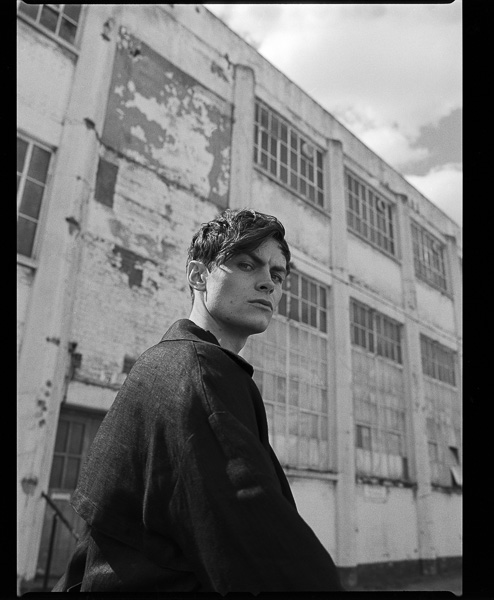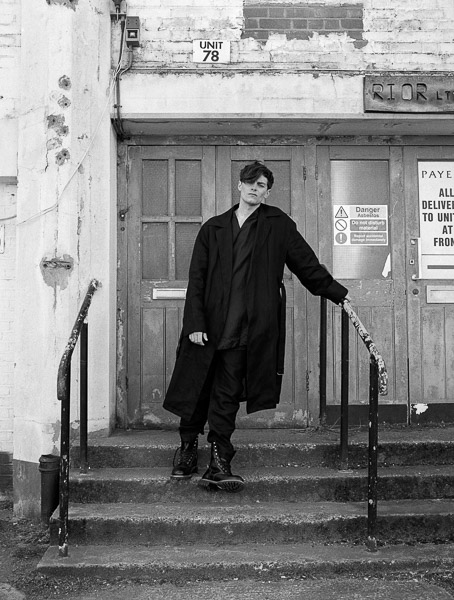Freddy Carter FAULT Magazine Covershoot and Interview
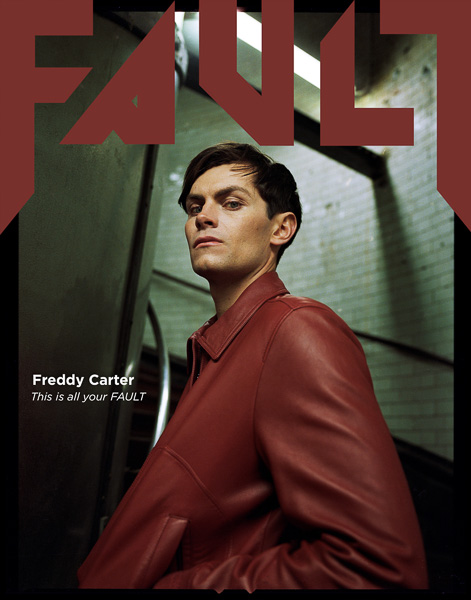
Top: Basic Rights
Bomber-jacket: Canali
Shoes: Malone Souliers
Bracelets: Stephen Webster
Photography – Joseph Sinclair
Styling – Olga Timofejeva @ The Only Agency
Grooming – Jon Chapman @ Nylon Artists
Shot On Hasselblad Using Kodak & Ilford Film
It didn’t take Shadow and Bone long to jump to the top of the most-watched list on Netflix. While it’s received significant support from lovers of the book series of which the show is based, for many, the series is their gateway into the mystical world, and they will no doubt stick along for the ride. Coverstar Freddy Carter plays the role of Kaz on the show, a fan-favourite character from the books and one most difficult to bring to life on screen. We caught up with Freddy to discuss the role, his process and, of course, his FAULTs.
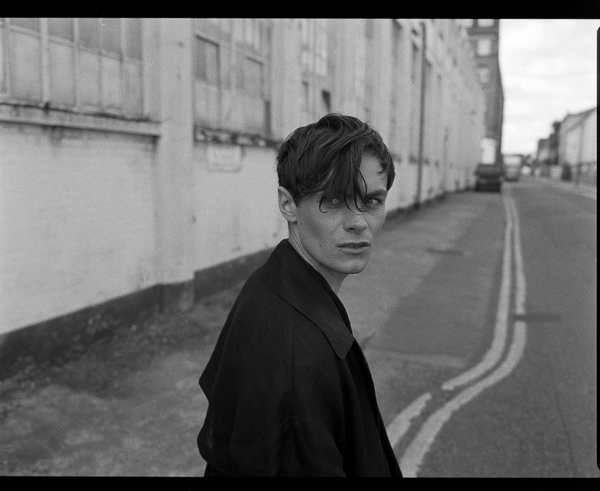
Boots: Belstaff
Necklace: Stephen Webster
Were you aware how grand and large in scale Shadow and Bone would be?
Because I had heard of the books and understood vaguely what the universe was, I thought it would be quite epic and grand, but then you see the final show, and it’s even more huge and exciting than I could have known.
We know you researched the part and spoke with the author while in development. Did you feel a lot of pressure to live up to the huge expectations people have for Kaz?
There was definetely some pressure, but I felt most of it came from myself as someone who loved the books and the character. I loved what they stood for and represented to a teenage form of myself, so I felt a responsibility to do a good job so that I was pleased, and I hope that means other people will be pleased with it as well
Boots: Belstaff
Necklace: Stephen Webster
What was the most challenging aspect of the role?
Kaz has so much trauma, and so much happened in the books that aren’t shown in the series, so finding a way to embody his phobias without having them shown on screen.
Were you still able to bring your own ideas and inject some of Freddy into the role?
I think we all felt very fortunate that the creative team were big fans of our ideas. It was a very collaborative project, and they wanted to get our impressions on scenes and would rewrite them as we went along. I feel that towards the end of the project, it felt like a team project and collaboration.
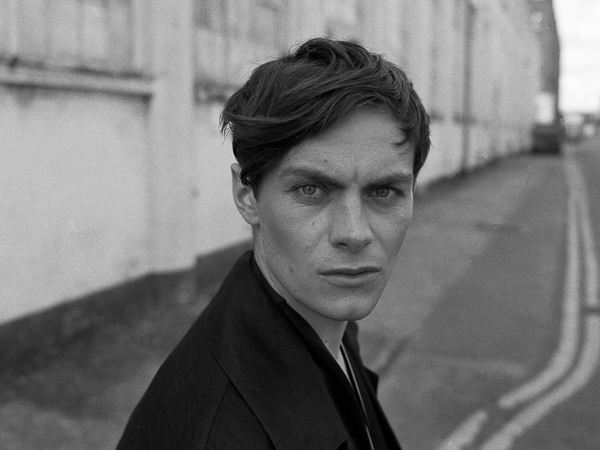
Boots: Belstaff
Necklace: Stephen Webster
This project is quite different to anyone you’ve played before, is the large change by design, or has it happened by chance?
It’s just how it’s gone, I’d love to say I pick and choose roles, but I’m not there yet. I’ve been very fortunate to be in projects with different themes and tones. I think you learn more by doing different things, and I have yet to find one which is like, “I just want to do this genre”. It’s all been fun, and reassuringly, I haven’t found one I want the stay in.
What’s been the best advice you’ve ever received?
I have a teacher from drama school, and she taught me the importance of being on time. If you get there five minutes early, you’re always ready for when everyone else starts. It’s such a simple thing, and I always think about that.
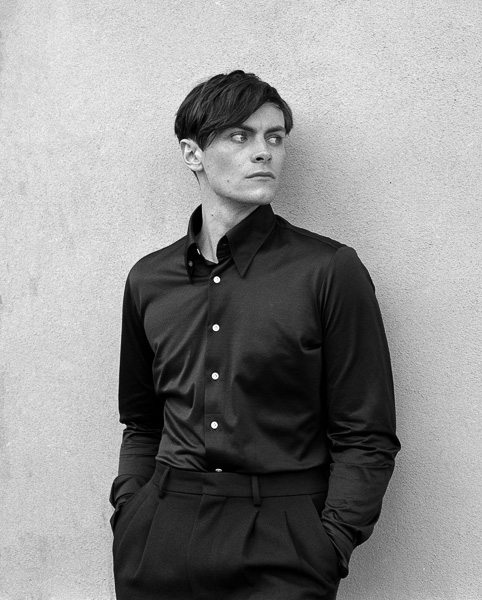
What’s been the worse advice?
I think when you’re fortunate enough to work a lot, people can try and capitalise on Instagram followers too quickly. People suggest that you do things because you have a following, and the choices don’t become about integrity; they become about being more famous, which I think is a dangerous path to walk down.
As your acclaim continues to grow, do you ever fear that what you want for yourself will be at odds with what your following want from you?
It’s definetely something I think about, and something that helps with this is making your own work because you’re that puts you in control of the narrative. I think subconsciously, to begin with, but definetely more consciously now, it was a way for me to have control over something, whereas, with acting, you can feel as though you turn up, leave and wait to see what comes of it.
When you work on other creative projects outside of acting, do you ever fear creative burnout from overexerting or do you instead see each project as a refuge and therapeutic escape from the other?
The truth is that both of those happen. Sometimes I worry that I’ll burn out and shouldn’t put so much on my plate, but sometimes, when I’m at my most tired, all I want to do is write something else. It can feel refreshing to engross myself in a different story and come back refreshed.
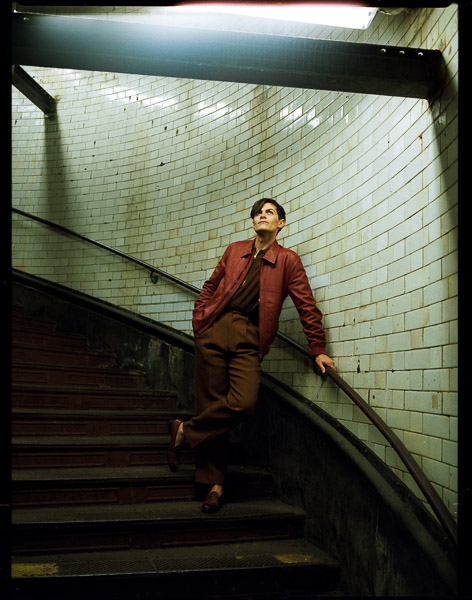
Top: Basic Rights
Bomberjacket: Canali
Shoes: Malone Souliers
Bracelets: Stephen Webster
What do you want the work you do as an actor to say as you as a person?
I’d love to look back and see only stories that I believed in. The stories that I believe in have some element of hope, and I’m not sure that that always looks the same. I think the hope in Shadow and Bone is different from the hope in Free Rein and so on. I think it looks different in every project, but as long as it’s in the heart of the project, I’ll be happy.
What’s something you’ve done to protect your mental health this year?
I can tell you a lot of what didn’t work! I did like a lot of us and picked up a new hobby every week for the first part. I threw myself into photography, taught myself about photography’s history, and learned to edit, which has been amazing.
What’s been the biggest change you’ve seen in yourself?
I’m nowhere near winning the battle of embracing every mistake or being fine with rejection, I’m making process and speaking to myself in a kinder voice.
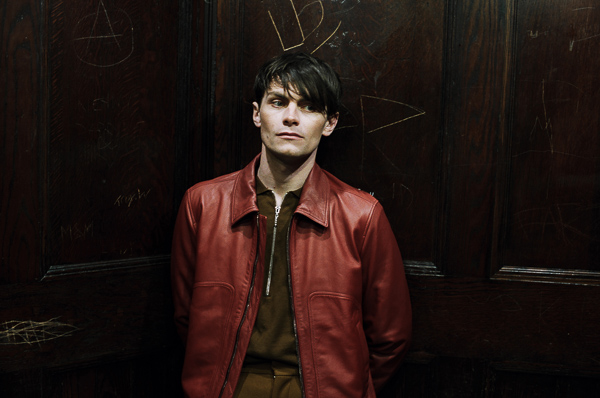
Top: Basic Rights
Bomberjacket: Canali
Shoes: Malone Souliers
Bracelets: Stephen Webster
What is your FAULT?
I’m far too self-critical. My instant reaction is to think the worst of myself, either my work but also social interactions. I believe that most people battle with this to varying degrees, but that tone of voice that you speak to yourself is so much harsher than the way you’d ever speak to someone else.
Do you think it probably comes from being a perfectionist?
Yes, or trying to hold on to them too tightly to the expectations of how I imagined something to be or a project to turn out. That readjustment is tricky.
